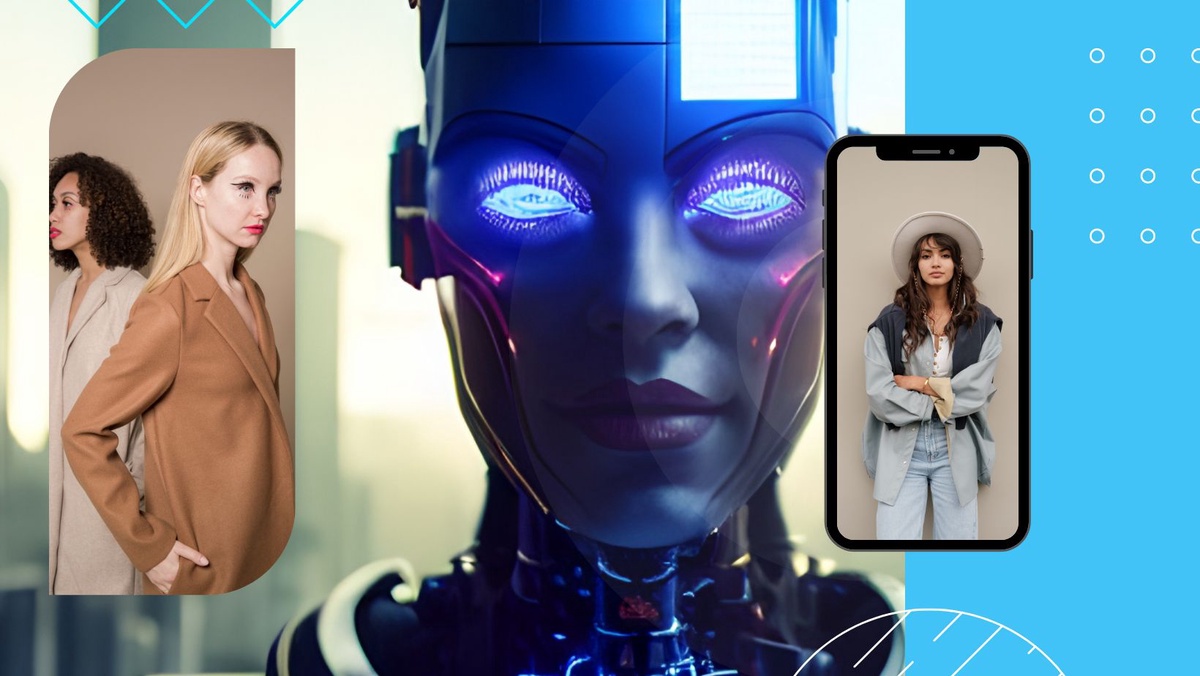AI is set to revolutionize the operations of many essential divisions in the fashion industry. AI will be essential in design, manufacturing, logistics, supply chain, and marketing in the fashion industry.
According to reports, the fashion and retail industries invest $7.3 billion annually in AI technology in 2022 and this number is set to rise in 2023 and beyond.
By automating shopping experiences to avoid fittings, artificial intelligence can transform how consumers shop for and interact with fashion. Fashion entrepreneurs can also use artificial intelligence solutions to understand their customer's behaviors better and develop more effective marketing campaigns. Artificial intelligence is bringing unparalleled changes to the fashion industry and is expected to continue.
Let us look at how firms utilize artificial intelligence to enhance their business models.
What role does artificial intelligence play in the fashion industry?
Computers and robots equipped with artificial intelligence (AI) can perform tasks and generate results in the same manner as intelligent humans.
Artificial intelligence allows machines to interpret results based on complex understandings of various processes.
In the fashion industry, artificial intelligence solutions typically combines multiple algorithms such as decision-making, logical reasoning, and problem-solving.
In the fashion industry, artificial intelligence enables people to make better choices regarding sustainable fashion.
How is Artificial intelligence transforming the fashion industry?
It is no surprise the fashion industry has turned to artificial intelligence for support, given the ever-changing trends and consumer demands for quality and convenience. With AI, marketing is hyperpolarized, design is streamlined, and sustainability is maximized in fashion.
Fashion Retail
Using AI in retail can also help you track your customers' activities during shopping and visualize their sentiments to plan a lean inventory based on what they generally buy and ignore.
Additionally, artificial intelligence can monitor foot traffic in retail stores and e-commerce while recording the customer's shopping experience and obtaining feedback to improve the shopping experience.
A more personalized experience for customers
For a business to succeed, it is essential to have a personalized experience. Customer data is readily available due to considerable data innovation. AI, ML, and deep learning technologies can help fashion firms identify individual client patterns when integrated with business data.
With technology's growing power and knowledge, marketers leverage shoppers' expectations and make choices based on color, texture, and style preferences to influence their experience.
Customized advertisements stand out in crowded markets, and customers are willing to provide personal information for better service.
Apparel Manufacturing
The apparel manufacturing industry requires a great deal of labor due to the many tasks necessary to source, size, grade, optimize patterns, sew, pack, ship, and sort dresses, all of which artificial intelligence easily accomplishes routine tasks.
In addition to stitching fabrics with mastery, AI-enabled machines can also detect defects in fabric to ensure quality. In addition, the technology ensures that colors are matched properly, and artificial intelligence will enable mass customization.
Automated sorting of clothing
Assorting and arranging clothes can be a time-consuming and labor-intensive process. Generally, warehouses have employees who work for them but cannot work 24/7. Additionally, it could be more efficient and costly. Big brands are testing artificial intelligence to sort clothing based on size, color, and preference, which can be sent to your house via drone. Deep learning makes it possible for robots to take better care of sunglasses.
Fashion's Future: What's in Store for us
As one of the world's top money-making industries, fashion has remained on top of the list for many years. Clothing is a part of daily life, and everyone wants to wear the best that there is to offer. From the factories to the shelves, artificial intelligence will have no effect but to improve everything.
When artificial intelligence is made a part of our everyday shopping experience, the company may learn what people like and do not like and ensure they are providing the customer with exactly what they want.
The fashion industry is estimated to grow by 7.3 billion by 2022 due to artificial intelligence. Identifying accurate trends in fashion will enable companies to sell their already manufactured garments and create new looks that do not exist at the moment.
Customers are key; artificial intelligence can help bring them the exact product they are looking for or help them determine their needs. Consumers are assured of leaving satisfied and will return every season to update their seasonal attire.
Conclusion
Several advanced technologies are being incorporated into the fashion industry to foster creative thinking and innovation, including artificial intelligence, machine learning, big data, augmented reality, virtual reality, and big data analytics. Fashion and artificial intelligence are becoming more closely related. As AI is introduced into the fashion industry, the industry is growing and transforming rapidly. With improved customer experiences and a greater variety of fashion options for customers, artificial intelligence is a technology that can play a significant role in the fashion industry. A bright future awaits both the AI industry and the fashion industry.


No comments yet